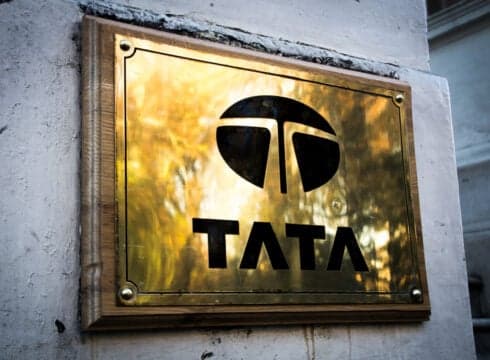The packaged chips are being sent to various partners of Tata Electronics in Japan, the US, and Europe
The company has established partnerships with multiple entities and are actively expanding its customer network
The company is also nearing completion of the design process for semiconductor chips in various sizes, including 28nm, 40nm, 55nm, and 65nm
Inc42 Daily Brief
Stay Ahead With Daily News & Analysis on India’s Tech & Startup Economy
Tata Electronics Ltd has started exporting semiconductor chips packaged at a pilot line within its Bengaluru-based research and development centre, a move anticipated to enhance India’s semiconductor capabilities.
The packaged chips are being sent to various partners of Tata Electronics in Japan, US and Europe, ET reported.
Tata Electronics has packaged chips at the facility, which are currently being shipped to customers abroad. The company has established partnerships with multiple entities and are actively expanding its customer network. Some of these products are still undergoing pilot testing.
Furthermore, the company is also nearing completion of the design process for semiconductor chips in various sizes, including 28nm, 40nm, 55nm, and 65nm, as well as some other higher nodes. This progress indicates that they are in the final stages before sending these designs for manufacturing, a phase known as tape-out in the semiconductor industry.
Before achieving a successful tape-out, there are several rounds of development. Hence, some of these products will be in advanced stages of research and development. They will be dispatched to specific customers to gather feedback for testing and further enhancement. Commercial production is scheduled for 2027.
Tata is currently at the forefront of semiconductor manufacturing in India. Earlier this year, the Union Cabinet approved the country’s first semiconductor fab to be set up by the Tata Group in partnership with Taiwan’s Powerchip Semiconductor Manufacturing Corp (PSMC).
Back then, IT Minister Ashwini Vaishnaw said that Tata Electronics Pvt Ltd’s (TEPL’s) semiconductor fabrication plant would come up in Gujarat’s Dholera with a capacity of 50,000 wafers per month.
Meanwhile, Tesla has also inked a strategic agreement with Tata Electronics to acquire semiconductor chips for its global operations. The Indian government was reportedly evaluating proposals totalling $21 Bn in investments as part of its effort to boost chip manufacturing within the country.
In 2021, the government launched Semicon India program, allocating INR 76,000 Cr to offer incentive support to companies involved in silicon semiconductor fabs, display fabs, compound semiconductors/sensors fabs, and semiconductor packaging and design.
Following this, in 2022, the India Semiconductor Mission (ISM) was initiated to foster a robust semiconductor and display ecosystem, aiming to position India as a key global hub for electronics manufacturing and design.
India’s semiconductor industry is forecasted to reach a market value of $55 Bn by 2026, thanks to the increasing demand for smartphones, automobiles and data storage. Semiconductor chips are expected to further integrate into various sectors of India’s economy, including aerospace, automobile, communication, IT, clean energy, defence, and others.
{{#name}}{{name}}{{/name}}{{^name}}-{{/name}}
{{#description}}{{description}}...{{/description}}{{^description}}-{{/description}}
Note: We at Inc42 take our ethics very seriously. More information about it can be found here.


